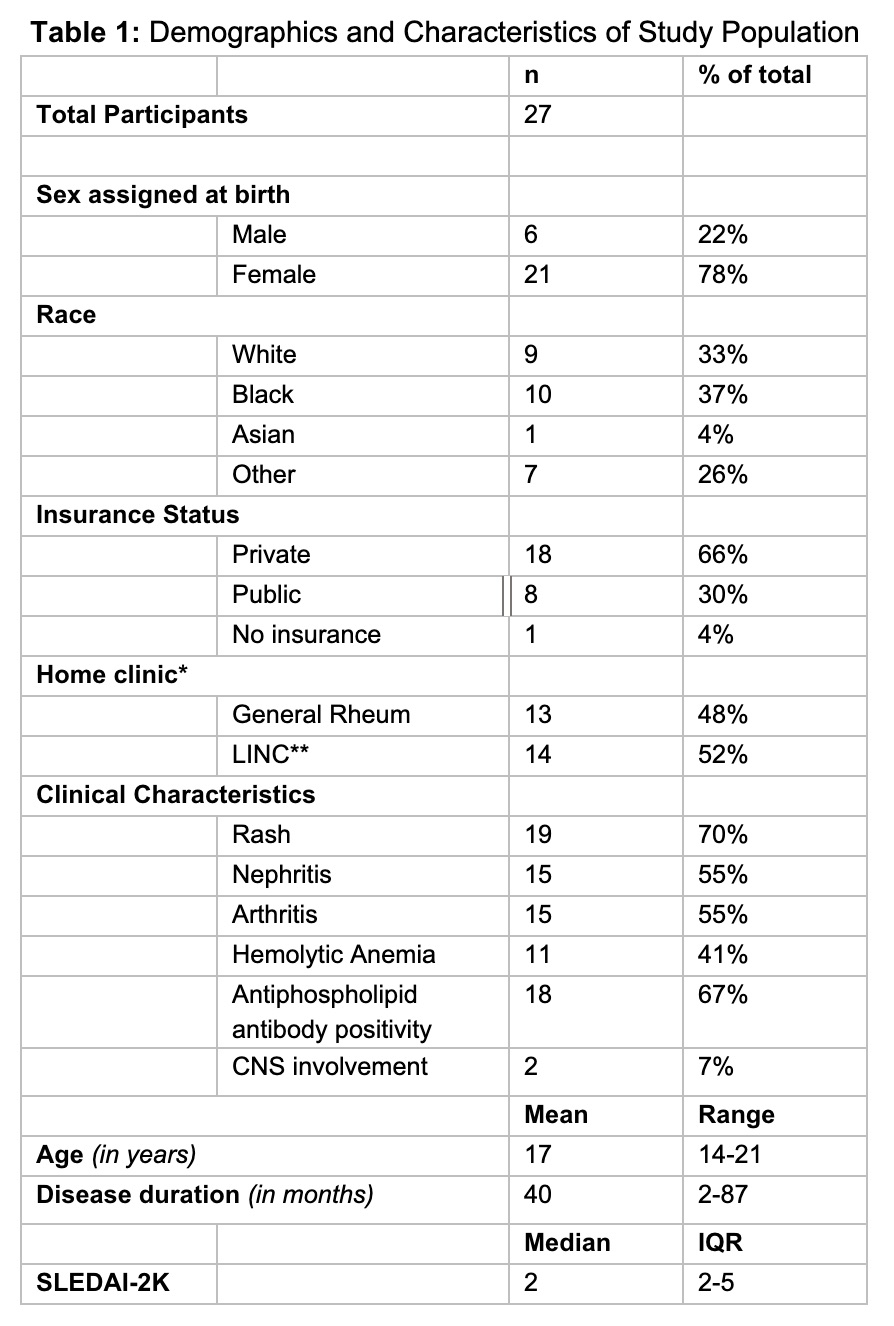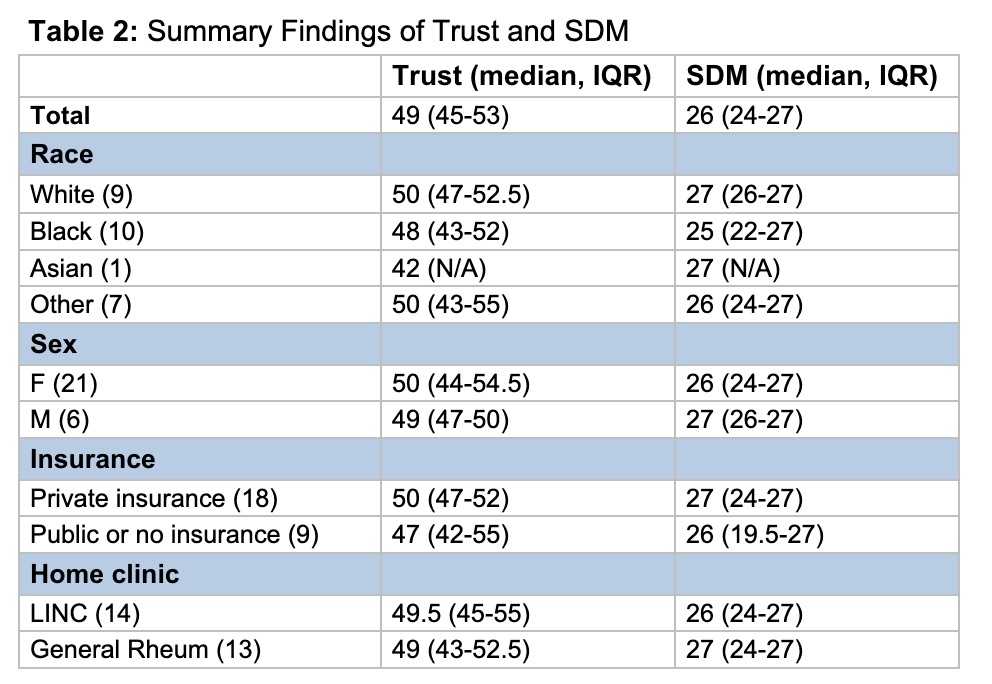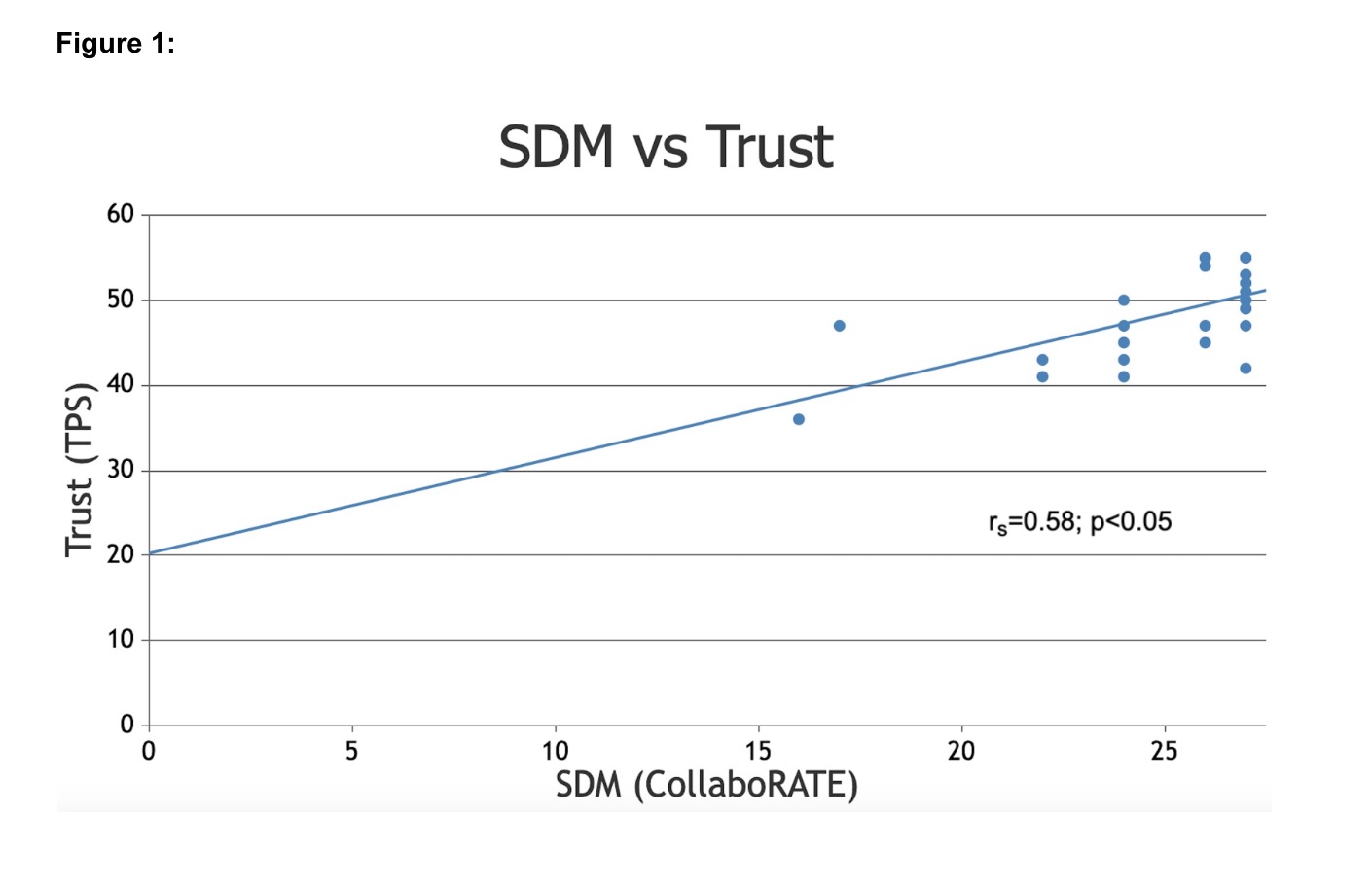Session Information
Session Type: Poster Session C
Session Time: 10:30AM-12:30PM
Background/Purpose: The lifelong nature of pediatric systemic lupus erythematosus (SLE) necessitates longitudinal doctor-patient relationships, and existing research in adult populations has demonstrated that aspects of these relationships can have a significant impact on patient adherence and outcomes. No studies to date have examined these relationships in adolescent patients, who are developing their own sense of autonomy and face an upcoming transition to adult care. We aimed to 1) quantify levels of trust and shared decision-making (SDM) amongst adolescent patients with SLE, and 2) examine associations between trust/SDM and patient factors including self-reported medication adherence, disease activity scores, race, and insurance status.
Methods: We conducted a pilot, prospective, cross-sectional survey design study of adolescents aged 14-21 years with a physician diagnosis of SLE presenting for follow-up care at a tertiary pediatric rheumatology center. We recruited from a general rheumatology clinic and an integrated lupus rheumatology-nephrology clinic (LINC). Patients were given questionnaires to be completed within 1 month of their last clinic visit. Questionnaires included the CollaboRATE tool to measure perceptions of SDM, the Trust in Physician Scale (TPS), and the Medication Adherence Self-Report Inventory (MASRI). Chart review was conducted to obtain patient race, insurance status, disease duration, clinical characteristics and to calculate current SLE Disease Activity Index 2000 (SLEDAI-2K) scores. We used Spearman’s rank correlation coefficients to examine relationships between trust, SDM, medication adherence, and SLEDAI-2K scores.
Results: A total of 27 patients were included in this study. The majority of patients were female (78%) with a median SLEDAI-2K of 2 (Table 1). Table 2 reports summary statistics of survey measures. We found that overall levels of trust and perceived SDM were high in the cohort studied; the median TPS score was 49/55 and median CollaboRATE score was 26/27. Disease duration and current disease activity were not significantly associated with trust and SDM. We performed Wilcoxon-Rank Sum tests to examine levels of trust and SDM between different racial groups and did not find significant differences, nor did we find significant differences when comparing patients who were publicly vs privately insured. However, there was a strong, statistically significant correlation between trust and SDM (rs=0.58; p< 0.05) (Figure 1). That between trust and medication adherence was modest and not statistically significant (rs=0.25; p=0.21).
Conclusion: We found that trust in physicians amongst adolescents with SLE was significantly associated with perceived SDM, which echoes what has been described in the adult population. Surprisingly, trust and medication adherence were not significantly associated with one another. This needs to be further examined with larger sample sizes. Further qualitative work is needed to uncover the nuances of causality in these relationships, and to identify other drivers of trust and SDM in this population.
**LINC is the name of the integrated lupus rheumatology-nephrology clinic
To cite this abstract in AMA style:
Lynch H, Burnham J, Chang J, McGill M, Butler N, Gmuca S. Trust and Shared Decision-Making in Adolescents with Systemic Lupus Erythematosus: Findings from a Pilot Survey Design Study [abstract]. Arthritis Rheumatol. 2024; 76 (suppl 9). https://acrabstracts.org/abstract/trust-and-shared-decision-making-in-adolescents-with-systemic-lupus-erythematosus-findings-from-a-pilot-survey-design-study/. Accessed .« Back to ACR Convergence 2024
ACR Meeting Abstracts - https://acrabstracts.org/abstract/trust-and-shared-decision-making-in-adolescents-with-systemic-lupus-erythematosus-findings-from-a-pilot-survey-design-study/



